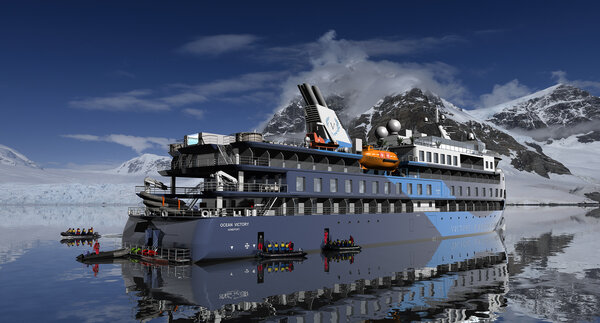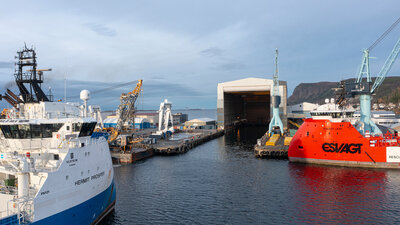All the expedition cruise vessels are on long-term hire to various operators. The 'Ocean Victory' has been chartered out to Albatros Travel for Antarctica journeys in the winter season and to American Queen Steamboat Co., through its sister company Victory Cruises, for Alaska cruises in the summer.
The INFINITY series of expedition cruise vessels are the first to be designed with the ULSTEIN X-BOW. Although proven in more than 100 ships, mostly offshore ships, the introduction of this feature to the cruise industry has redefined the cruising experience. In head seas, the impact will be absorbed, leading to reduced vibrations and reduced sea spray. This means that during the sea crossings, the vessel can keep higher speed, while comfort level is high. Important to note is that reduced friction when moving forward means reduced fuel consumption, which in turn, leads to reduced harmful emissions.
The vessel offers 93 suites.



